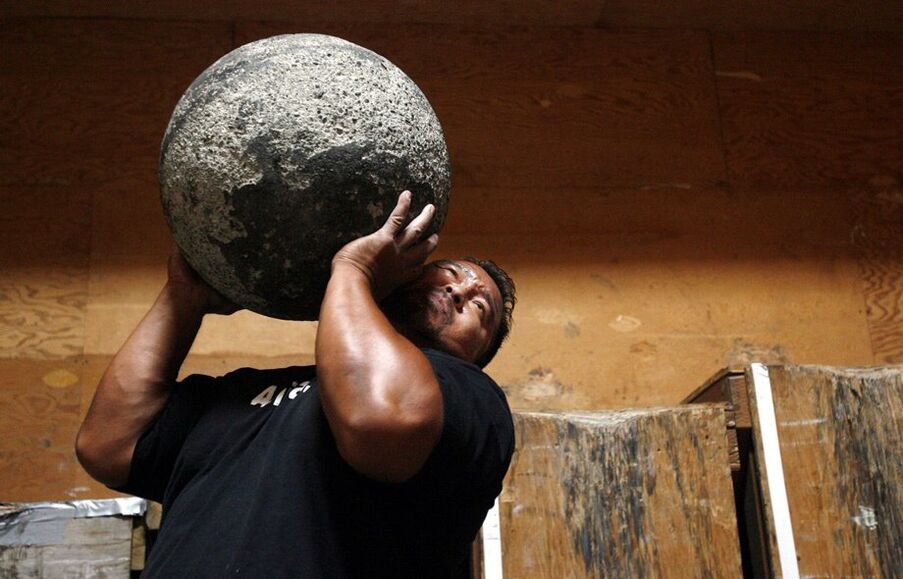Prostatitis and hemorrhoids are the most common diseases in men over 40. In addition, in some cases, these two pathologies can develop in parallel, greatly impairing the quality of human life. Here you need to figure out what these two diseases are and what symptoms they show, so that you can independently identify the problem and consult a specialist in time.
What is hemorrhoids: characteristics and symptoms

Hemorrhoids are dilated veins in the rectum. These veins are called hemorrhoids, and nodules form when they expand.
The main reason for the development of the disease is the violation of the blood flow out of the lower rectum. This is due to various reasons:
- A sedentary lifestyle;
- Excess weight;
- Frequent constipation;
- Overloaded
- Inflammation of the rectum.
In other words, blood rushes to the hemorrhoid area, but its outflow is hindered, so it overflows the vein and expands. Due to the expansion of the veins, the cavernous tissue under the rectal mucosa has changed. These parts swell and enlarge, forming so-called hemorrhoids.
Nodes can be internal or external. The external lymph nodes are the result of weakened sphincter muscles, so the internal lymph nodes shift and fall off the anus. The number of internal or external structures in the rectum can vary from one to several nodes. Moreover, the more nodes, the more severe the symptoms of the disease.
Hemorrhoids are usually chronic with periodic deterioration.
The disease progresses slowly and the symptoms are not visible for a long time, which explains the main problem of hemorrhoids-late diagnosis. The initial symptoms are mild:
- Slight edema of the lower rectal tissue;
- Periodic itching of the anus;
- Burning and pain after bowel movements.
Constipation can worsen symptoms-severe pain and tingling during bowel movements. At the same time, mucus may be released from the rectum, further irritating the mucous membrane and increasing the burning sensation.
Obvious hemorrhoids are manifested by inflammation of the lymph nodes. This is accompanied by unbearable pain. Lymph nodes are damaged during defecation, so blood is found in the stool.
Over time, the corpus cavernosa of the rectum becomes severely deformed. As a result, the nodules fall off and must be fixed in the anus with fingers.
The basic concept of prostatitis

Prostatitis is inflammation of the prostate. This disease is infectious and non-infectious in nature, and can occur in both acute and chronic forms.
If both prostatitis and hemorrhoids are considered at the same time, special attention should be paid to the non-infectious chronic inflammation process of the prostate. This disease is often called congestive prostatitis.
The essence of the problem is that it violates the nutrition of the prostate. Nutrition is understood as blood microcirculation and lymphatic outflow. The deterioration of these processes leads to the following changes:
- The secret of the prostate stagnated;
- Swelling of organs;
- The secret of the prostate thickens;
- The inflammatory process develops.
The result of malnutrition is the enlargement of the prostate gland, which compresses the surrounding tissues and organs (bladder neck, lower urethra), so there will be obvious symptoms of prostatitis.
The main causes of congestive prostatitis are:
- A sedentary lifestyle;
- Lack of regular sex life;
- Excess weight;
- bad habits;
- Unbalanced diet.
Usually, it is mainly men over 40 years old who face this disease.
Doctors often refer to congestive prostatitis as an "office worker's disease", thus emphasizing the connection between prostate malnutrition and a sedentary lifestyle.
The symptoms of the disease are as follows:
- Often want to go to the toilet;
- Pain in the perineum, rectum, and bladder;
- Weak urine flow during urination;
- The feeling of constantly filling the bladder;
- Ejaculation disorders;
- The effectiveness deteriorates.
Ejaculation disorder is manifested as rapid ejaculation after short-term stimulation of the penis, or the inability to reach orgasm during intercourse. The first is related to the increase in the pitch of the prostate, the second-a violation of the contractility of the organ.
What is the relationship between prostatitis and hemorrhoids?

The link between prostatitis and hemorrhoids is obvious-a common cause of development. In one case, in another, the development of the disease is due to impaired blood circulation and lymphatic flow. In this case, prostatitis is caused by the thickening of the juice in the prostate due to nutritional imbalance, and hemorrhoids are caused by the invasion of the veins where blood flows from the rectum.
The reasons for such violations are as follows:
- Sedentary lifestyle (sedentary work);
- Lack of regular sex life;
- obesity;
- bad habits.
Most modern people work in the office, that is, they sit most of the time. Under modern living conditions, few people can spare enough time for active entertainment and sports, and most of the day is spent in sitting positions. The result is poor blood circulation in the pelvis and lower limbs. If a man’s leg veins have a problem at the same time, then the problem with the pelvic organs is only a matter of time. Usually, varicose veins are also found in age groups at risk of prostatitis.
It seems that irregular sex will only affect the prostate, but what does hemorrhoids have to do with it? This is exactly the situation related to the two diseases. The development of congestive prostatitis requires the expansion of hemorrhoidal veins. Poor sex life will have a negative impact on the function of the prostate. As a result, hyperemia and symptoms of prostatitis appear. The enlarged prostate compresses surrounding tissues, including blood vessels, and interferes with normal blood flow in the area. As a result, the blood flow of the rectal veins changes, venous stasis gradually develops, the veins expand, and hemorrhoids are formed. Of course, this process will last for many years, but if no measures are taken, prostatitis will eventually lead to hemorrhoids.
The same thing happens with obesity. The nutrition of the pelvic organs is violated, and then prostatitis or hemorrhoids develop. If the man does not respond to the presence of one of these diseases, the second disease should appear over time.
The negative effects of bad habits should be considered separately. The most common addictions are smoking and alcoholism. Nicotine has a negative effect on blood vessels and increases the tension of blood vessels. As a result, they become narrow, which negatively affects the blood flow rate. Another factor is the interruption of oxygen delivery to tissues during long-term smoking. As a result, poor blood circulation to the pelvic organs and lower limbs again leads to congestion, prostatitis or hemorrhoids.
Alcohol abuse can negatively affect the function of the nervous and cardiovascular system. Raised blood pressure is often noticed, which is the cause of impaired blood flow. Therefore, smoking and systemic drinking are the direct ways to cause prostatitis and hemorrhoids.
Usually, one of these diseases occurs simultaneously under the influence of multiple factors. Over time, congestion spreads to all organs of the pelvis, leading to the development of the second disease.
After figuring out whether hemorrhoids are related to prostatitis, you should know that these two diseases can develop in parallel. The existence of two such diagnoses complicates treatment, so you should see a doctor immediately.
Treatment of hemorrhoids and prostatitis
If both diseases get worse, they must be treated at the same time. Generally speaking, the treatment of these two diseases overlaps, so taking medication can prevent the disease from getting worse.
In the treatment of prostatitis, tablets and rectal suppositories are used. For the treatment of hemorrhoids, rectal suppositories are also used, and the treatment is supplemented by microcapsules.
Suppository
A mild anti-inflammatory drug is preferred. They also prevent inflammation of the prostate and reduce the appearance of hemorrhoids.
In addition, the use of methyluracil suppositories can be recommended to improve local metabolic processes and enhance immunity. Suppositories containing ichthyol in the composition are generally prescribed as anti-inflammatory agents.
Microclysters relieve inflammation
Microclysters are used to stop inflammation and prepare bowel before administration as a rectal suppository. At home, enema is made with anti-inflammatory herbs (chamomile, St. John's wort, marigold).
Physical therapy and exercise therapy
Physiotherapy is performed only after the acute symptoms have resolved. It aims to improve the blood circulation of the pelvic organs and can reduce the frequency of deterioration. In the treatment of prostatitis, electrical stimulation, magnetic therapy and laser therapy are used.
Since access to the prostate is done through the rectum, this type of surgery has a positive effect on anal health.
Exercise therapy is suitable for all men who are facing a process of stagnation of pelvic organs. Exercise stimulates local circulation and lymphatic drainage. They can be performed in the clinic or at home. In addition, it is also useful for men to participate in sports, swimming, yoga, and running at a moderate speed.
Prostate massage for hemorrhoids
Prostate massage is the best treatment for congestive prostatitis. In the context of hemorrhoids worsening, inflammation of hemorrhoids is strictly contraindicated. The surgical procedure will have to be postponed until the inflammation of the node stops. Otherwise, during the massage process, hemorrhoids may be damaged, cause heavy bleeding, and may cause the inflammatory process to spread or even infected the site.
Precaution

The purpose of preventing hemorrhoids and prostatitis is to increase the remission period and reduce the frequency of exacerbations. Precaution:
- Balanced diet;
- Prevent constipation;
- Strengthen the immune system;
- Sports;
- Regular sex life;
- Reject bad habits.
It is important to arrange the diet in this way to avoid the development of constipation. Constipation is one of the main factors in the exacerbation of hemorrhoids and prostatitis, because it impairs blood circulation. During defecation, the hard stool can damage the rectum and hemorrhoids, worsen the condition, and stimulate the prostate, which is hidden by a thin membrane. To prevent constipation, your doctor may also recommend special medicines, such as glycerin suppositories.

























